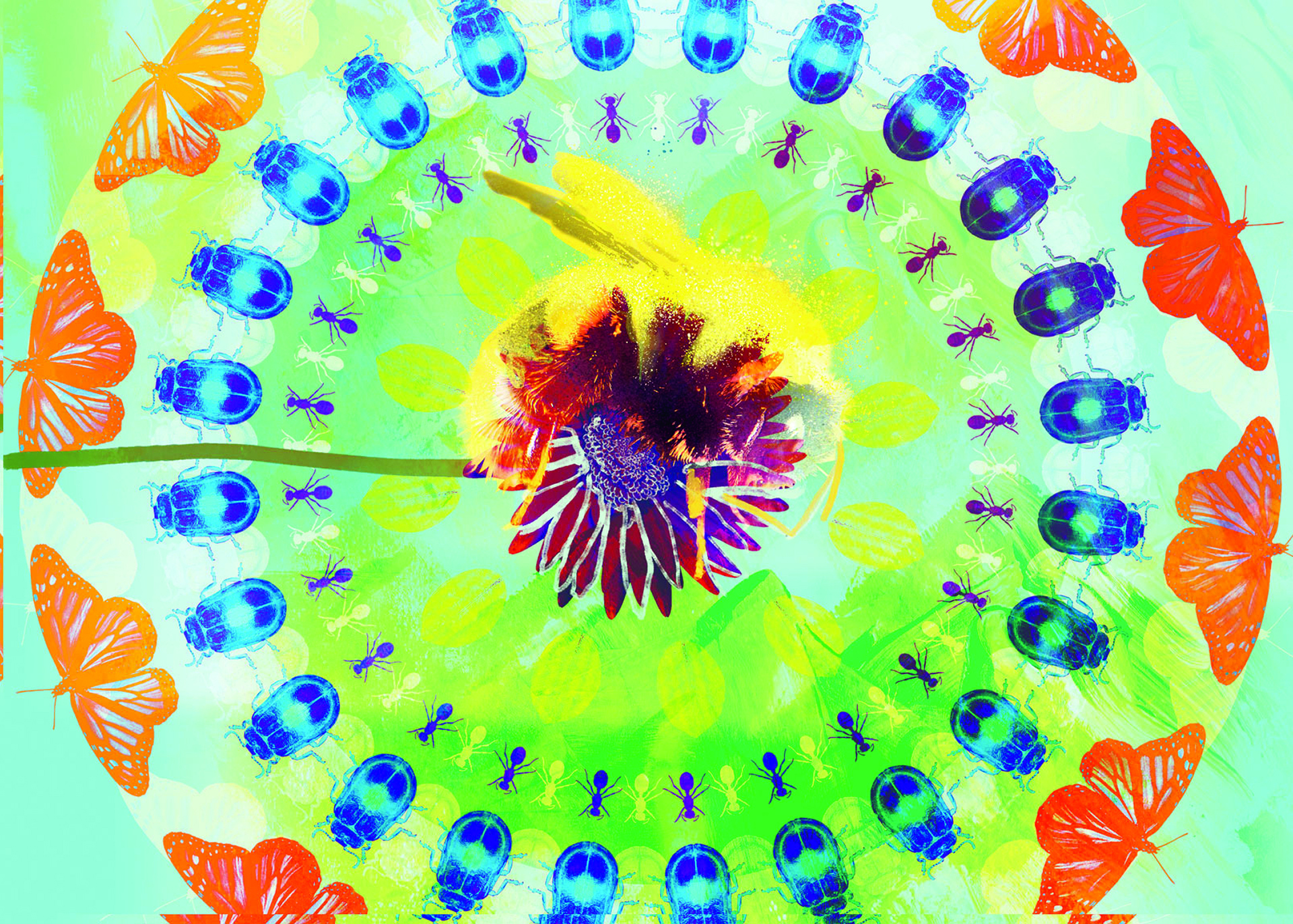Why do I love insects? Well, why shouldn’t I? After all, these tiny creatures not only live amazing lives, with lots of fun, intrigue and wonder. They also work tirelessly, 24/7, to uphold our ecosystems and help us humans survive.
As you read this, around 200 million insects for each of us humans, are shuffling and crawling and flapping around on the planet, outnumbering the grains of sand on all the world’s beaches. You’ll find them everywhere – in forests and lakes, in the cold of the Antarctic and under the pavements in our cities. They can live inside a dead tree, in the nostrils of a walrus or inside your computer.
And they have been here for a long time. Insects have – with a good margin – seen the dinosaurs come and go. And while it’s easy to overlook these smallest among us, we should not do that. Because insects are indispensable in the ecosystems – and thus indispensable for our lives and our future.
Insects help plants set seed
Most of us know that we would not have honey without honeybees, but without the pinhead-sized chocolate midge, cocoa flowers would not be pollinated. No cocoa, no chocolate. Actually, insect visits to flowers contribute to seed production in more than 80 per cent of the world’s wild plants. Insect pollination also improves fruit or seed quality or quantity in a large proportion of our global food crops. And although wind-pollinated crops, such as rice, corn and various other grains account for most of our energy intake, insect-pollinated fruits and berries are important energy boosters, as well as a vital source of variety in our diet.
Insects are caretakers that clean up our world
Insects also turn dead plants and animals into soil. Millions of insects, together with fungi and microorganisms, perform the thoroughly crucial task of decomposing dead organic matter.
And even though very few of us think about it as we are taking a Sunday stroll through the park or in the forest, these processes of decomposition are crucial to our life on Earth. Insects’ patient chomping on dried-up trees and rotten remains doesn’t just clear the ground of dung and dead plants and animals. Just as importantly, the insects’ contribution returns the nutrients in the dead organic matter to the soil. Without this, it will be impossible for new life to grow.









